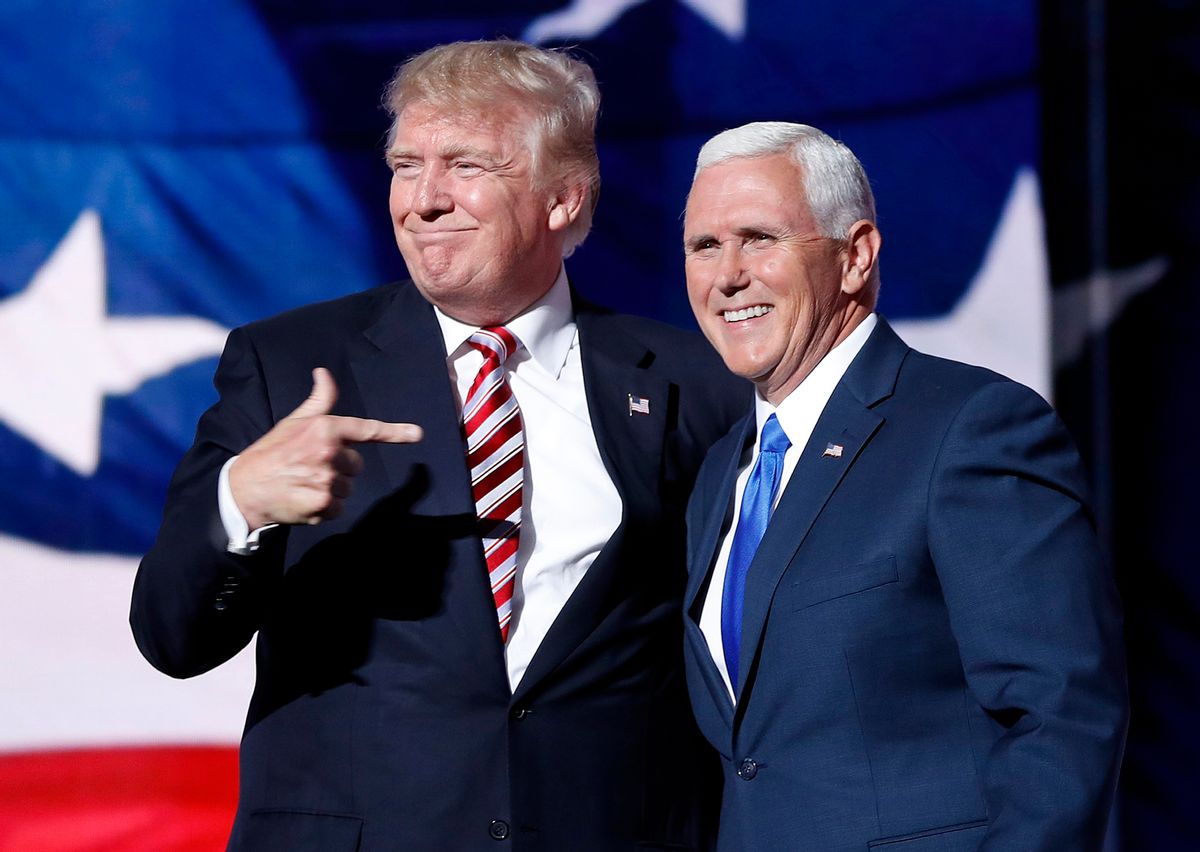WASHINGTON — In Tuesday's vice presidential debate, Indiana Gov. Mike Pence will step into a role that has become all too familiar during his time as Donald Trump's running mate: clean-up duty.
It was Pence, a mild-mannered Midwesterner with strong conservative credentials, who tried to soften Trump's criticism of a military family and toughen the businessman's stance on Russia. When Trump waffled over endorsing House Speaker Paul Ryan in his August primary, Pence weighed in with a solid vote of confidence in his former congressional colleague.
Pence's task has perhaps never been more critical than on the debate stage at Virginia's Longwood University, where he'll face off Tuesday evening against Sen. Tim Kaine, the Democratic nominee Hillary Clinton's No. 2.
The vice presidential contest comes as Trump tries to recover from one of the worst weeks of his turbulent presidential campaign. He delivered an uneven — and at times undisciplined — performance in the first presidential debate, then became absorbed in a controversy over comments he made two decades ago about a beauty queen's weight.
That firestorm was quieted only by revelations that Trump suffered more than $900 million in losses in 1995 that could have allowed him to avoid paying federal income taxes for as many as 18 years, according to records obtained by The New York Times.
With time running out to sway undecided voters ahead of the Nov. 8 election, Republicans say Pence needs to use his moment in the political spotlight to shift the campaign conversation away from Trump's self-inflicted wounds.
"His goal in this vice presidential debate is to continue to take the high road, but also take every opportunity he can to not get sidetracked on issues that aren't important," said Alice Stewart, who advised Texas Sen. Ted Cruz's presidential campaign.
The single debate for the running mates is always a more low-key affair than the trio of presidential showdowns. That's particularly true in an election where the candidates at the top of the ticket are such outsized figures who have been in the public eye for decades.
While last week's first debate between Trump and Clinton drew a record-setting television audience of about 84 million people, the Pence-Kaine contest is expected to be watched by far fewer viewers.
For many of those who do tune in, the debate is likely to be one of their first opportunities to thoroughly assess the men who could be next in line for the presidency. In a recent Associated Press-GfK poll, more than half of registered voters said they didn't know enough about Kaine to venture an opinion about him and about 44 percent said the same for Pence.
Kaine is a friendly and earnest political veteran whose easygoing demeanor is similar to Pence. He's tried to serve as a validator of Clinton's character, eager to offset the questions many Americans have about her honesty and trustworthiness.
Kaine spent several days preparing for the debate in Raleigh, North Carolina, and in his hometown of Richmond, Virginia, which is about an hour west of the debate site. Washington lawyer Robert Barnett has been playing the role of Pence in Kaine's debate preparations.
Pence, too, has been meticulously preparing for the showdown, a contrast with Trump, who eschewed traditional study sessions and practice debates. Wisconsin Gov. Scott Walker has stood in as Kaine in the prep sessions.
Since joining Trump's ticket in July, Pence has often been tasked with easing the anxieties of conservatives who worry about the Republican nominee's sometimes-fluctuating political ideology.
"There's Pence speak and there's Trump speak — Mike Pence using the language of conservative orthodoxy and Donald Trump using the language of a brash businessman," said Matt Schlapp, chairman of the American Conservative Union.
When Trump clashed with American Muslim parents whose son was killed serving the military in Iraq, it was Pence who issued a statement saying the family should be "cherished by every American."
And when Trump seemed to encourage Russia to find missing Clinton emails, Pence quickly warned Russia that there would "serious consequences" for interfering in the U.S. election.
In both cases, Pence tried to turn the matters around on Clinton by raising points about her handling of related issues, a strategy he's sure to rely on during Tuesday's debate.



Shares